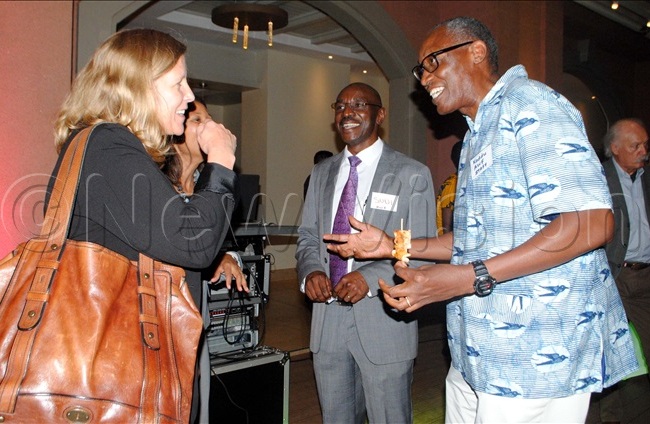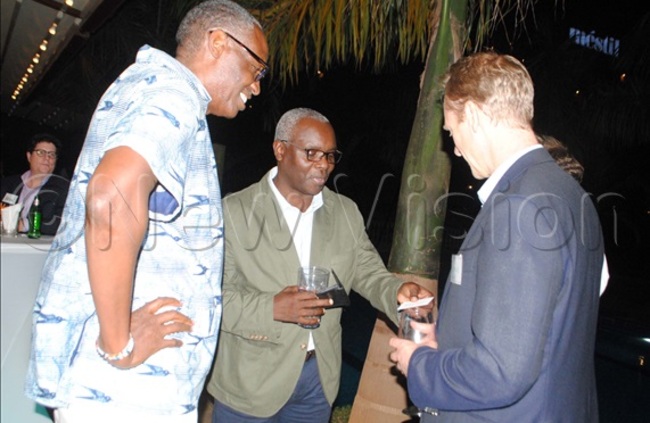Wildlife Foundation to invest sh111b in conservation
The activities to be funded by AWF will be under a 10-year strategic plan that covers three areas.
ENVIRONMENT WILDLIFE CONSERVATION
Africa Wildlife Foundation (AWF) is set to invest a total of Sh111b ($30m) in the conservation of wildlife and wildlands in the coming decade starting this year.
According to Sudi Bamulesewa, the Country Director of AWF in Uganda, the funding will contribute to conservation initiatives under the Uganda Wildlife Authority (UWA) and the National Forestry Authority (NFA).
The activities to be funded by AWF will be under a 10-year strategic plan that covers three areas namely creation of leadership, particularly among the youth to understand and appreciate wildlife, protect the habitats or ecological systems with UWA and NFA. Thirdly, the strategic plan will deal with the conservation of critically threatened species such as rhinos.
"We are interested in the communities and Gov't should use the little resources for action in the critical conservation areas," said Bamulesewa. "We need to change and we are looking at lessons we have learnt to protect wildlife and wildlands."
 (L-R) Shawna Hirsch Deputy Director Economic Growth for USAID and Regina Mackenzie Director Economic Growth for USAIDS interacting with Sudi Bamulesewa, African Wildlife Foundation Uganda Country Director and Kaddu Sebunya Chief Executive Officer of African Wildlife Foundation during African Wildlife Foundation workshop at Mestil Hotel on January 23, 2020. Photo by Mary Kansiime
(L-R) Shawna Hirsch Deputy Director Economic Growth for USAID and Regina Mackenzie Director Economic Growth for USAIDS interacting with Sudi Bamulesewa, African Wildlife Foundation Uganda Country Director and Kaddu Sebunya Chief Executive Officer of African Wildlife Foundation during African Wildlife Foundation workshop at Mestil Hotel on January 23, 2020. Photo by Mary Kansiime
He was speaking on Thursday at a cocktail at Hotel Mestil in Kampala on Thursday after a weeklong workshop to design AWF's conservation strategy in Uganda.
Bamulesewa said challenges experienced in the wildlife sector are different compared to the challenges of two decades ago. This, according to Bamulesewa requires a change in strategy to achieve conservation.
He said AWF's vision and action to conservation is informed by the global conventions on government development framework such as Vision 2040.
Conservation, development inseparable
Kadu Sebunya, the President of AWF in Africa said conservation in Africa needs development and that development needs conservation. He said conservationists should not be opposed to development.
Sebunya said conservationists should not oppose mining in protected areas. He said conservationists should be sitting on the round table where decisions on mining in protected areas are taken and should avoid getting in the room where decisions are taken when it is too late to make better decisions.
He said mining should take place in the protected areas such as the national parks and that the questions should be how it is done and that restoration measures should be undertaken.
For instance, the oil exploration in Murchison Falls National Park has been undertaken followed by outstanding restoration initiatives. Today, wild animals are able to move on top of the oil wells without any disruption. However, the oil exportation in Uganda started on a bad note with poor waste disposal until the National Environment Management Authority restored sanity by putting rules in place and making sure oil waste is kept in one place.
Sebunya worked previously with USAID funded projects such as STAR in Uganda and the World Conservation Union in Uganda before he became the President of AWF based in Nairobi.
"How do we negotiate for space for conservation in modern Africa?" wondered Sebunya. "How do we help African Governments to make decisions of conservation and development? "We cannot achieve conservation without development."
 (L-R) Kaddu Sebunya Chief Executive Officer - African Wildlife Foundation interacting with Robert Kabushenga Chief Executive Officer of Vision Group and Alistair Pole Senior Director project and partnerships at African Wildlife Foundation during African Wildlife Foundation workshop at Mestil Hotel on January 23, 2020. Photo by Mary Kansiime
(L-R) Kaddu Sebunya Chief Executive Officer - African Wildlife Foundation interacting with Robert Kabushenga Chief Executive Officer of Vision Group and Alistair Pole Senior Director project and partnerships at African Wildlife Foundation during African Wildlife Foundation workshop at Mestil Hotel on January 23, 2020. Photo by Mary Kansiime
Get people off the land
Tom Okello Obong, NFA's executive director of NFA said the world has changed after the digital revolution. He said previously they would mount operations without poachers or traffickers getting to know about it until they were arrested. Today, by the time the rangers get on the ground, the poachers have got text messages informing them of an approaching force to counter them.
He said conservation will only happen in Uganda if people get off the land and stop depending on expansive agriculture.
AWF has been in Uganda since 1968 after being formed in 1961 for Africans to lead the conservation agenda on the African continent.
Previously, AWF worked with the Uganda National Parks (UNP), Game Department (GD) and the Forestry Department, according to Bamulesewa.
UNP and GD were merged in 1996 to form UWA which is the top conservation body in-charge of wildlife in the protected areas and outside protected areas.
In Uganda, AWF has a team of 10 staff but also work through partnership with conservation bodies-UWA and NFA. AWF provides technical support and equipment in order to build better capacity for conservation of wild habitats.